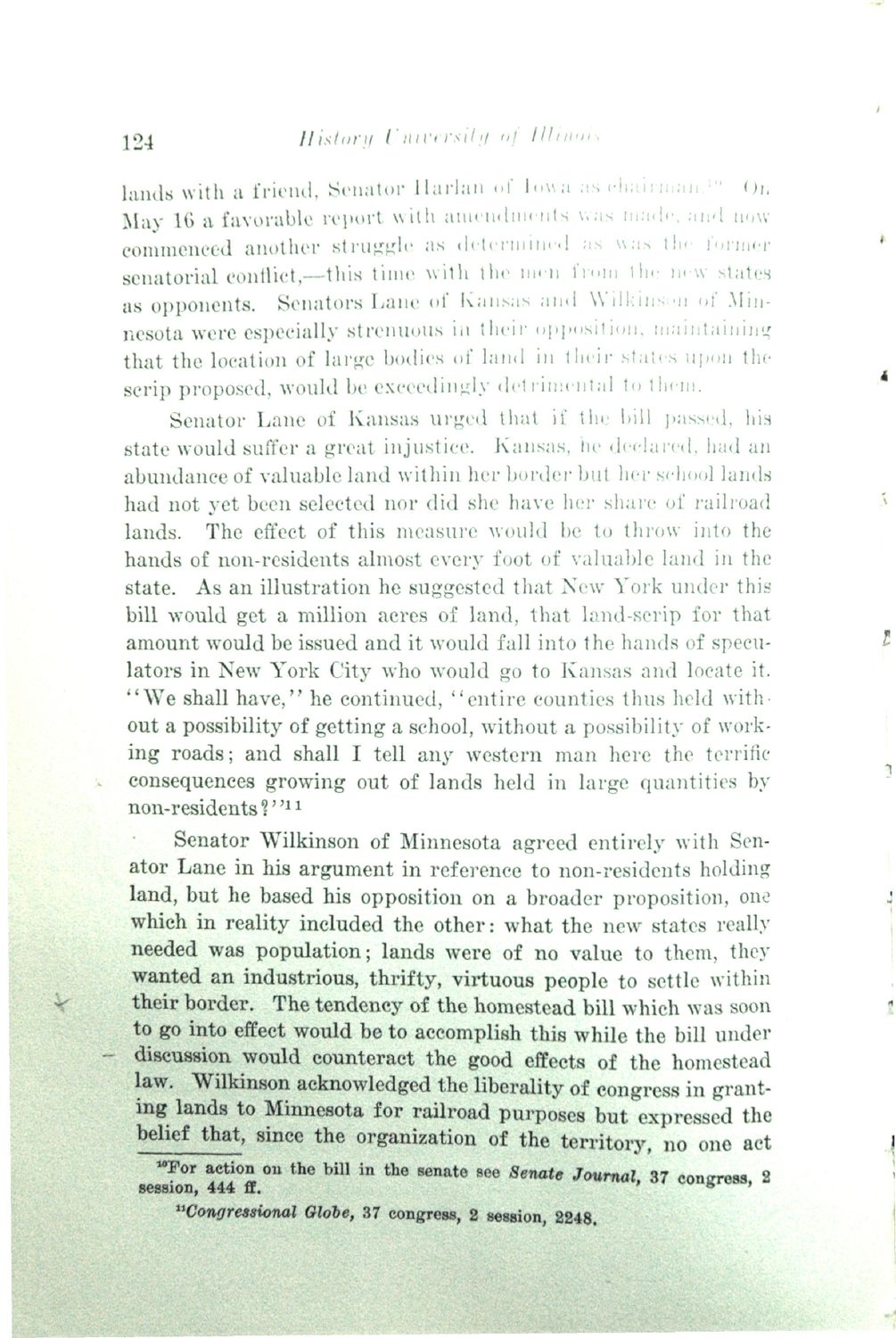| |
| |
Caption: Book - History of the University (Powell)
This is a reduced-resolution page image for fast online browsing.

EXTRACTED TEXT FROM PAGE:
124 History University of Illinois lands with a friend, Senator Harlan of Iowa as chairman.10 On May 16 a favorable report with amendments was made, and now commenced another struggle as determined as was the former senatorial conflict,—this time with the men from the new states as opponents. Senators Lane of Kansas and Wilkinson of Minnesota were especially strenuous in their opposition, maintaining that the location of large bodies of land in their states upon the scrip proposed, would be exceedingly detrimental to them. Senator Lane of Kansas urged that if the bill passed, his state would suffer a great injustice. Kansas, he declared, had an abundance of valuable land within her border but her school lands had not yet been selected nor did she have her share of railroad lands. The effect of this measure would be to throw into the hands of non-residents almost every foot of valuable land in the state. As an illustration he suggested that New York under this bill would get a million acres of land, that land-scrip for that amount would be issued and it would fall into the hands of speculators in New York City who would go to Kansas and locate it. " We shall have," he continued, "entire counties thus held without a possibility of getting a school, without a possibility of working roads; and shall I tell any western man here the terrific consequences growing out of lands held in large quantities by non-residents Vni Senator Wilkinson of Minnesota agreed entirely with Senator Lane in his argument in reference to non-residents holding land, but he based his opposition on a broader proposition, one which in reality included the other: what the new states really needed was population; lands were of no value to them, they wanted an industrious, thrifty, virtuous people to settle within their border. The tendency of the homestead bill which was soon to go into effect would be to accomplish this while the bill under discussion would counteract the good effects of the homestead law. Wilkinson acknowledged the liberality of congress in granting lands to Minnesota for railroad purposes but expressed the belief that, since the organization of the territory, no one act "For action on the bill in the senate see Senate Journal, 37 congress, 2 session, 444 flP. I HUH * "Congressional Globe, 37 congress, 2 session, 2243.
| |